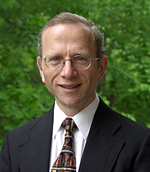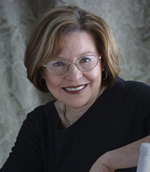On Passover, two new readings of the Jewish people's story
 |
| Jonathan Sarna |
A pair of university faculty members are looking back at the history of Jewish peoplehood, just as Jews around the world are marking the beginning of Passover.
Jonathan Sarna, the Joseph H. & Belle R. Braun Professor of American Jewish History, will contribute to many families' seders this year, as a consultant to a new Haggada (the traditional book that tells the Passover story) that offers a look back at American Jewish tradition since the founding of America. The Haggada includes portraits of George Washington visiting Jewish homes, and accounts of matza baking during the California gold rush and in the South during the Civil War. As Sarna tells The Jerusalem Post: "What is most exciting about this Haggada, is that American Jews will learn about their legacy in the United States...There is documentation in this text pointing to the observance of Passover from the 18th [century] through the early 20th century and the practice of Jewish tradition in the United States as well. Click here to read the Post's article about the new Haggada.
 |
| Sylvia Barack Fishman |





